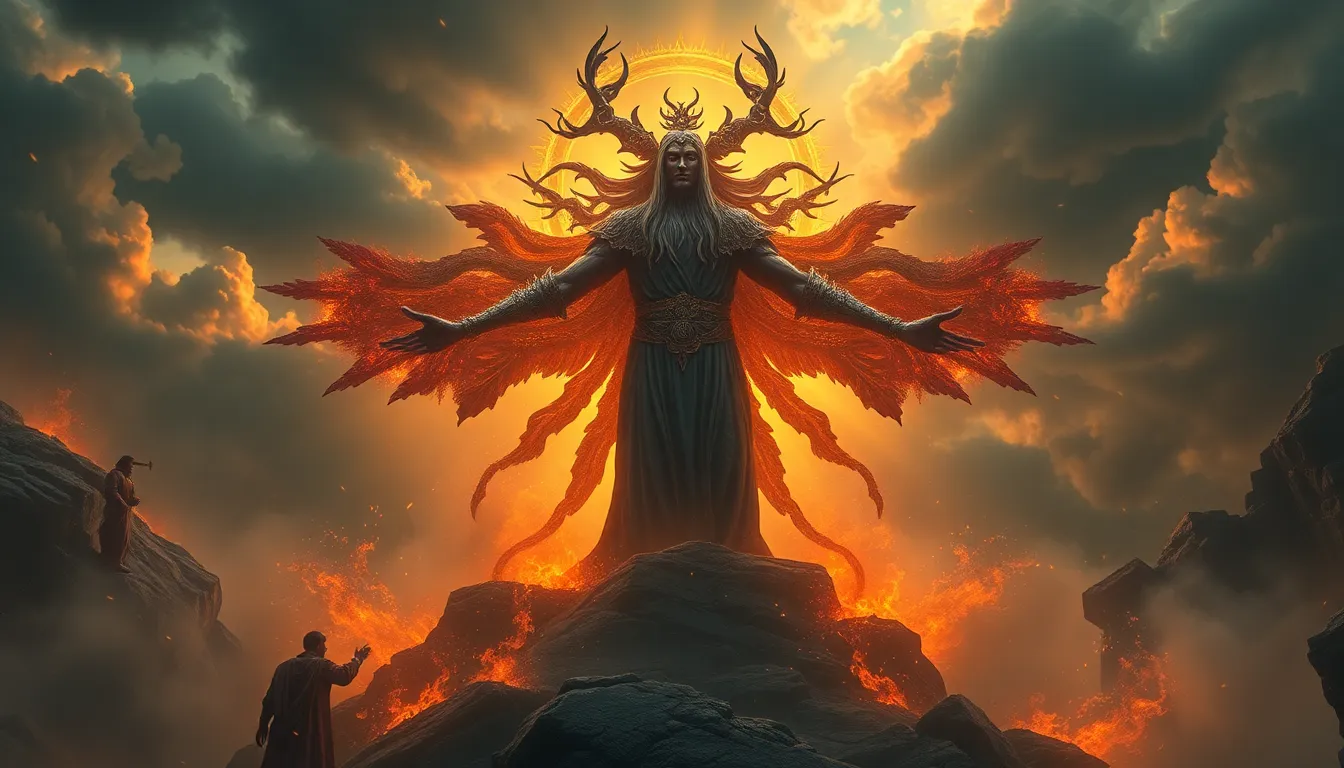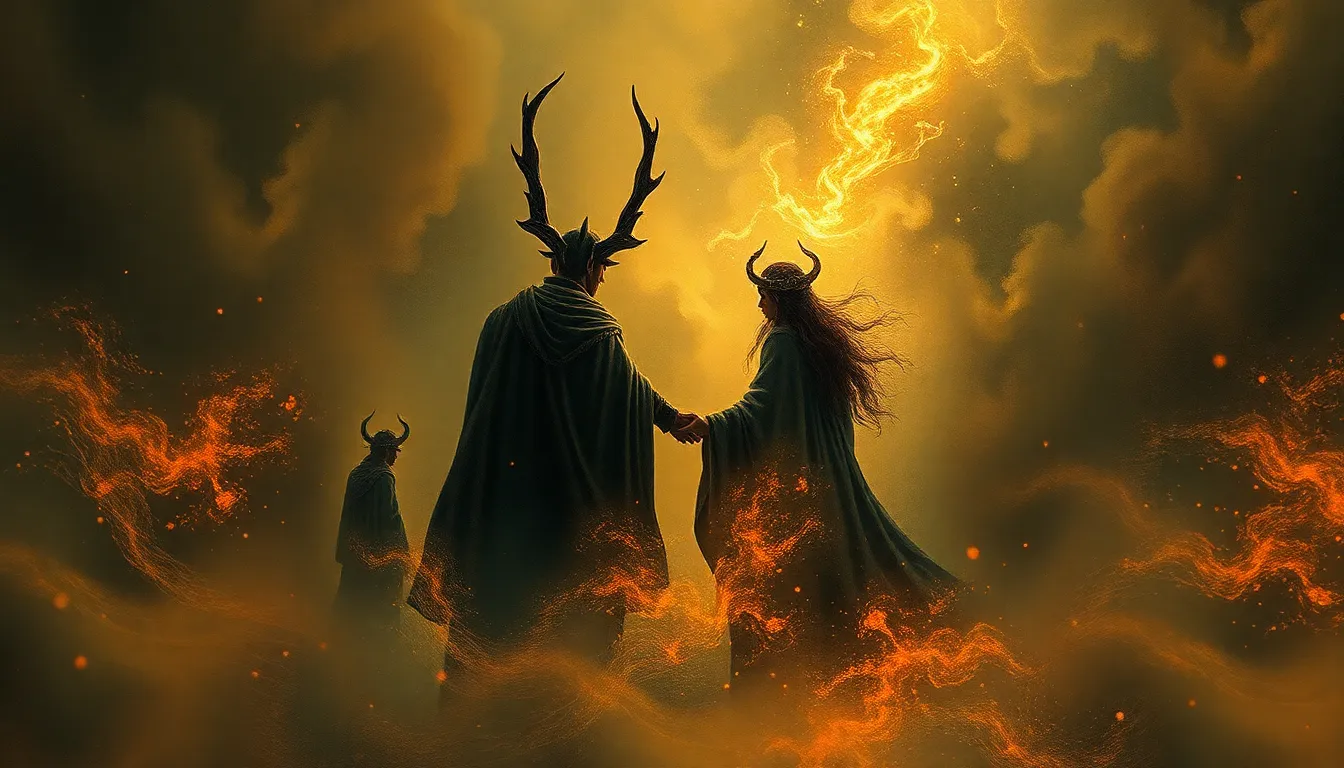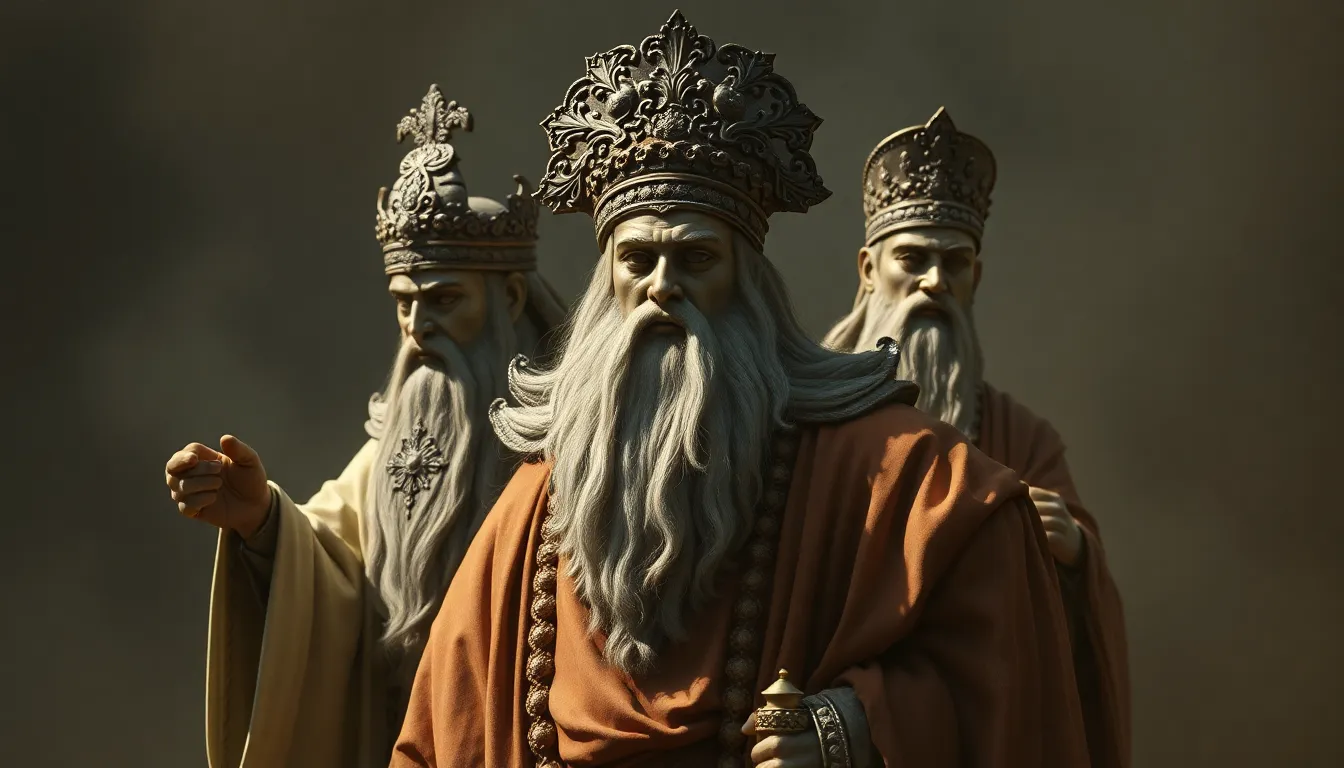The Transformative Legacy of Myths: Lessons for Modern Life
I. Introduction
Myths are narratives that have been passed down through generations, often embodying the beliefs, values, and experiences of a culture. They serve as bridges to our past, providing insight into the human experience and our place in the cosmos. The cultural significance of myths lies not only in their storytelling but also in their ability to shape societal norms and individual identities.
This article explores the transformative power of myths and the lessons they offer for contemporary living. By examining how myths have influenced human experiences throughout history, we can glean valuable insights that remain relevant today.
II. The Role of Myths in Ancient Civilizations
In ancient civilizations, myths served multiple purposes:
- Myths as tools for understanding the cosmos: Early humans looked to myths to explain the natural world and their existence within it. Stories of gods and goddesses often reflected the forces of nature, such as creation, destruction, and rebirth.
- Myths in societal governance and law: Many ancient societies used myths to establish laws and societal norms. These narratives provided a moral framework that guided governance and community behavior.
- Preservation of cultural identity through storytelling: Myths played a crucial role in maintaining cultural heritage. Through storytelling, communities preserved their beliefs, values, and historical narratives, ensuring continuity across generations.
III. Common Themes in Global Myths
Despite their diversity, many myths share common themes:
- The Hero’s Journey: This archetype, popularized by Joseph Campbell, illustrates the hero’s transformation through trials and tribulations. Examples include Odysseus in Greek mythology and King Arthur in Arthurian legends.
- Creation myths: These narratives seek to explain the origins of the world and humanity. They often involve divine beings and cosmic events, as seen in the Genesis creation story or the Hindu tale of Brahma.
- Mythical creatures: From dragons to phoenixes, mythical creatures embody various human traits and fears. They often symbolize power, wisdom, or the unknown.
IV. Myths as Moral and Ethical Guides
Myths frequently convey moral lessons and ethical considerations:
- Case studies of myths imparting values: The story of Prometheus teaches about the consequences of defiance and the quest for knowledge, while the tale of King Arthur emphasizes the virtues of chivalry and honor.
- Lessons on virtue, vice, and the human condition: Myths illustrate the complexities of human nature, portraying both heroic deeds and tragic flaws.
- The relevance of these morals in today’s ethical dilemmas: The themes of sacrifice, justice, and integrity remain pertinent as we navigate modern issues such as inequality and environmental concerns.
V. Myths and Psychological Insights
Myths are rich with psychological insights:
- Carl Jung’s theory of the collective unconscious: Jung posited that myths arise from a shared unconscious that transcends individual experiences, reflecting common human fears and aspirations.
- Myths as reflections of individual and societal psyche: The stories we tell reveal deep-seated beliefs and values, often mirroring societal challenges and aspirations.
- Therapeutic uses of myths in modern psychology: Myths can be employed in therapy to help individuals navigate personal struggles, providing a framework for understanding their experiences.
VI. The Influence of Myths on Art and Literature
Myths have profoundly influenced art and literature across cultures:
- Myths as inspiration for classic and contemporary works: From Shakespeare to modern fantasy novels, mythological themes permeate literature, enriching narratives and character development.
- Analysis of mythological motifs in various artistic expressions: Artists have drawn from myths to convey complex ideas, as seen in the works of painters like Botticelli and sculptors like Michelangelo.
- The cycle of reinterpretation: Myths are continually reinterpreted in modern storytelling, allowing new generations to find relevance in ancient tales.
VII. Myths in Modern Society: Relevance and Application
Today, the interest in mythological themes is resurging:
- The resurgence of interest in mythological themes today: Popular culture showcases myths in various forms, from films to video games, indicating their enduring appeal.
- Using mythological narratives to address current social issues: Myths can serve as allegories for contemporary challenges, helping to frame discussions around morality, identity, and community.
- Myths in popular culture: Movies, books, and media frequently draw upon mythological elements, as seen in franchises like Marvel and Disney.
VIII. Lessons from Myths for Personal Growth
Myths offer valuable lessons for personal development:
- Identifying personal heroes and role models from myths: Figures like Hercules or Athena can inspire individuals to embody qualities such as courage and wisdom.
- Applying mythological lessons to personal challenges: Learning from the trials of mythological heroes can provide guidance in facing our own obstacles.
- Myth-inspired practices for self-reflection and resilience: Engaging with myths through journaling or storytelling can foster personal insight and growth.
IX. Critiques and Misinterpretations of Myths
While myths hold significant value, they are not without criticism:
- The danger of oversimplification and appropriation: Misunderstanding or misrepresenting myths can lead to cultural appropriation and a loss of their original meanings.
- Discussing the evolution of myths and their meanings: Myths evolve over time, and it is essential to acknowledge their changing interpretations and contexts.
- Striking a balance between respect for ancient wisdom and modern interpretation: Engaging with myths thoughtfully can foster a deeper understanding of their relevance and significance.
X. Conclusion
The transformative legacy of myths continues to influence modern life, offering timeless lessons that resonate with our individual and collective experiences. By exploring the rich tapestry of mythological narratives, we can uncover insights that guide us in navigating the complexities of contemporary living. Myths remind us of our shared humanity, the values we aspire to, and the profound connections that bind us to our past and each other.



